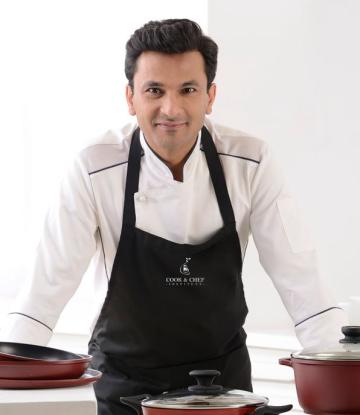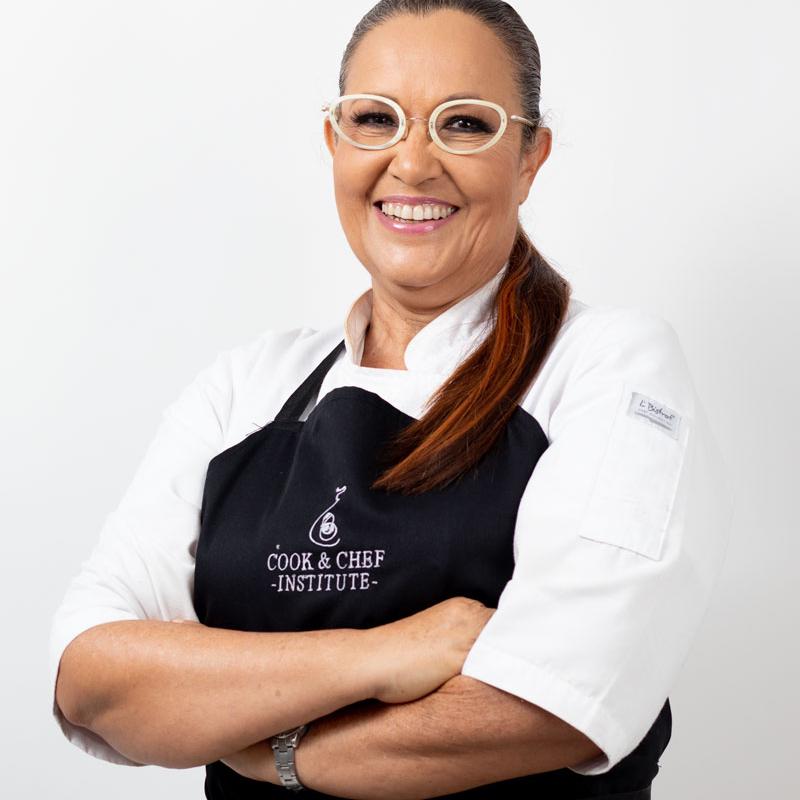Cook & Chef Interviews
One on one with Vikas Khanna
Vikas Khanna’s (1971, Amritsar, India) professional record is so extensive and varied that it is difficult to summarise his professional and dynamic career. Several pages would be necessary to list the feats that this illustrious chef has achieved during the past two decades. Vikas emigrated to the United States with the desire to show the world the best of his home country’s cuisine and, today, he has become one of the most important figures of international cuisine.
Considered by Deutsche Welle News and Gazette Review as one of the 10 best chefs in the world, and owner of Junoon in Manhattan (a restaurant that held a Michelin star for six years), author of over 37 books, philanthropist, acclaimed film director at the Cannes Festival, presenter of Master Chef India and ambassador for social causes that fight against hunger and malnutrition, these are just some of the activities and achievements that help us introduce this exceptional man.

1. After this presentation, how would you describe yourself?
I describe myself as a kid from Amritsar who got very fortunate and the universe took his side in many things in life. All this happened because of destiny. I think the moment we start crediting ourselves for our success or our achievements, it diminishes or devalues the success. Because there are so many parameters which come together to make one event happen.
I feel is the Universe who has chosen me so many amazing projects and to be able to represent my culture and cuisine, that is a true definition I believe in.
2. What aspect of your life would you say has been the most unexpected? And the most intense?
There have been many unexpected things in my life. I think one of the greatest was closing off my restaurant in Times Square. It was very unexpected because it was doing very well and losing that place was heart breaking for me. But at the same time, it became a very important turn for my life.
When I met His Holiness the Dalai Lama, he said to me “if you don’t shut down, how will you be able to explore new opportunities and be free to do more things?” Now I think there is always something bigger happening which is waiting for us and it will lead you to something much more special.
3. You opened your first restaurant in India when you were 17 years old. What made you do this at such a young age?
I opened it with my mum and our grandmother was the head of the kitchen. I was very passionate about the idea that chefs might be invisible, but they are a part of every big celebration of a life, from weddings to retirement parties to childbirths. And that is what intrigued me and I said: “we should use the space in the back of our house to do this kind of events and gatherings”. And there is when I understood that the most important part of hospitality was customer service. You can put all the marble and granite in your kitchens and dining rooms, but if you do not understand the value of a customer, nothing means anything.
4. After that you emigrated to the United States and ended up settling there. What remains of that young man today?
I think moving to America was a big risk in my life because I was very settled back home in Amritsar. It did it without any confirmed jobs, or any support. But what I left behind was much more important and relevant than what I gained as moving forward in America. I left parents, family, business, co-workers... and that is a big burden. On the other hand, I took with me this ambition, or maybe what I could call it a mission now, to represent India.
5. What makes Indian cuisine unique?
Indian cuisine is so unique because it has been the mother cuisine to millions of kitchens around the world. What India presents is far more intense in the kitchen than anything else in the world. I feel very proud to be playing a small role in this massive cultural selft power.
6. Your role in the dissemination and exposure of Indian gastronomy has been fundamental. What is left for us in the West to discover?
I think there’s a lot to discover. It’s a never-ending search. There’s still so much regarding food that has to be brought over to the west and so much of western foods or techniques or ideas or implications or managements that should be taken to the East.
7. Over the last a few years, chefs have become celebrities. What are the positives and negatives of this?
I feel that in the last decade chefs have obtained the status of celebrities thanks to the power of social media and television. Although this has of course positives things, I think the downside is that now many chefs just want to be famous. I think that is a very destroying part. This is a very unforgiving industry, and I feel that it is very important to have you culinary, artistry, research, curiosity... first taken care of.
8. Your Feed India initiative, which was carried out throughout the first months of the COVID-19 pandemic, has been one of the largest food collection campaigns in history. Can you tell us about how it was managed and what it consisted of?
Feed India went on wholeheartedly full strength for one year, and then we slowed down as things were coming back to normal. It’s still going on in some areas of India. As a chef, if hunger doesn’t move you, then you’re in the wrong business. Hunger and compassion for hungry people has to be your very big driving force. For me also it included the commitment to my mum, that I would do anything to support the country, to support my people. I think that is why Feed India became one of the largest food drives by an individual in the world. At the same time it was very challenging, it was a very heavy experience for me, emotionally, physically, spiritually... it was like almost being on a rollercoaster ride.
9. Do you believe in sustainable food? How can gastronomy help this society?
Of course, I believe in sustainable food and I think Chefs will be the leaders of the farming side of the game. It is great seeing the awareness of sustainability, which is extremely important in order to run a successful business or a kitchen. As chefs, we have to reinvent ourselves constantly and we have to be on top of the game. At this time people expect something new from us.
10. What challenges or dreams do you still want to accomplish?
I have a lot of dreams. Sometimes I feel like that I have just started. I have a lot of more projects coming out, I’m constantly working on new ideas, new projects, finding the way to bring the story of India to more and more people. One of the most important projects launching in few weeks is called Secret Foods of India and it’s a magnum opus book that we have been making for eight years now.
So, a lot of more work is coming, and, I hope it will continue inspiring people.

